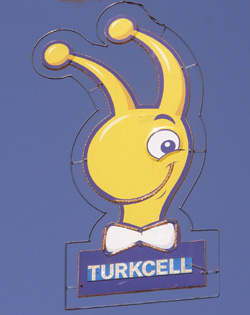 Today I am going to talk about CSR which is short for “Corporate Social Responsibility”. In postmodern times, “Corporate Social Responsibility” has enabled companies to do something good for society and to give something back to the community. Some companies may plant trees or donate money and others might start working in close cooperation with Non-Profit and Non-Governmental Organizations to help people in need. I visited an intercultural Erasmus Intensive Program at Yasar University in Izmir, Turkey, where I got in touch with the big Turkish telecommunications company called “Turkcell”. Together with Corporate Responsiblitly Specialists from Turkcell and university lecturers, who teach CSR-related aspects of marketing we talked about good practice examples of CSR but also about the dark sides of the concept.
Today I am going to talk about CSR which is short for “Corporate Social Responsibility”. In postmodern times, “Corporate Social Responsibility” has enabled companies to do something good for society and to give something back to the community. Some companies may plant trees or donate money and others might start working in close cooperation with Non-Profit and Non-Governmental Organizations to help people in need. I visited an intercultural Erasmus Intensive Program at Yasar University in Izmir, Turkey, where I got in touch with the big Turkish telecommunications company called “Turkcell”. Together with Corporate Responsiblitly Specialists from Turkcell and university lecturers, who teach CSR-related aspects of marketing we talked about good practice examples of CSR but also about the dark sides of the concept.
absolutely helpful
Turkcell afford to have a dedicated department which only deals with CSR issues. In our first category Burcu Haylaz tells us, how their company is doing charity work in Turkey and how quickly they took action after a horrific earthquake struck the province of Van in Eastern Turkey in 2011. Besides that I was really captivated by the “Snowdrops” project for young women and by the idea of the digital moneybox for collecting contributions from the wider public.
absolutely sceptical
Unfortunately not every company is really practicing CSR to genuinely help others. Some companies are rather trying to help themselves. Often the campaign appears like 100% marketing for the company. In this category I talked with Ann Knaepen from “Leuven University College” in Belgium, Carla de Lima from the Polytechnic Institute of Bragança in Portugal, Dr. Reka Jablonkai from “Corvinus University” in Hungary and Anne Burke from the “Letterkenny Institute of Technology” in Ireland. Together we talked about the phenomenon of “Green Washing”. This means, that companies that have a bad image in society, are using low-input CSR measures to artificially clean their own image. Green Washing, the negative side of CSR, seems to be an activity which flourishes in the shadow of all the good practice examples of corporate social responsibility. So I guess we need to be careful when we hear about large companies practicing CSR. There is a chance that they may be doing good things for the wrong reasons. Oxfam and Turkcell on the other hand seem to be great examples of companies and organisations that seriously and honestly try to improve the lives of all their stakeholders, not just their customers’.
absolutely idealistic
In our last category I would like to come back to our Turkcell CSR specialists. Together with them and the Turkish lecturers, we discussed theoretical aspects of CSR and their practical implementation. My Turkish colleague Duygu Turker who teaches CSR at the university asked Derya Kökten from Turkcell what factors in her view make a CSR activity successful. It is refreshing to hear how the university lecturers and the practitioners were working together on building this bridge between theory and practice in our seminar. I think such encounters, in this case hosted at Yasar University in Izmir, provide excellent opportunities to share important knowledge and to create a network so that students and lecturers from universities and the specialists from companies can work together to find the best solutions.
Our next show will again be coming to you on 3 of August.
Until then –
Bleiben Sie absolut interkulturell!
The host of this show is: Dr. Laurent Borgmann
Editor: Markus Scherer
![]() Download
Download
![]() Podcast-Feed
Podcast-Feed
![]() iTunes-Abo
iTunes-Abo

It seems rather hard to convince companies to invest in education the way Turkcell has. However, it’s possible for things to change. I’m thinking that if companies want better prepared individuals to hire at some point education will become a point of interest.
Great to see more companies prctice CSP. Let’s hope they are serious about their commitment and don’t just parctice green washing.